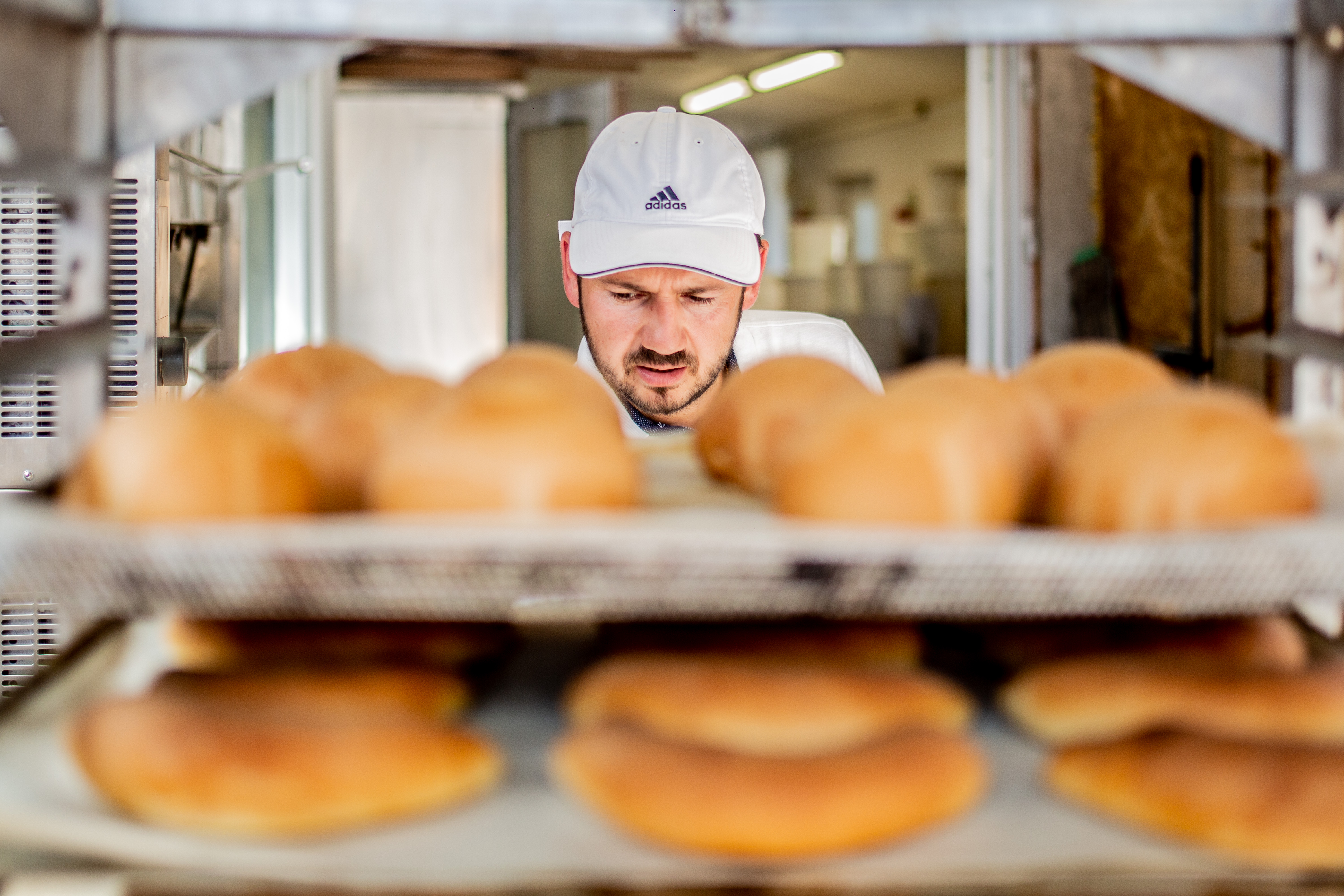We’re in Soroksár on Grassalkovich út, where the HÉV trains run. The road is lined with industrial buildings as far as the eye can see, but there are a few family homes here too, one of which is where Panelpék and its delicious baked goods are to be found. József Cseperkáló started his business from scratch, in an apartment not far from here, in Pesterzsébet – today, he serves as an inspiration for both professional and part-time bakers.
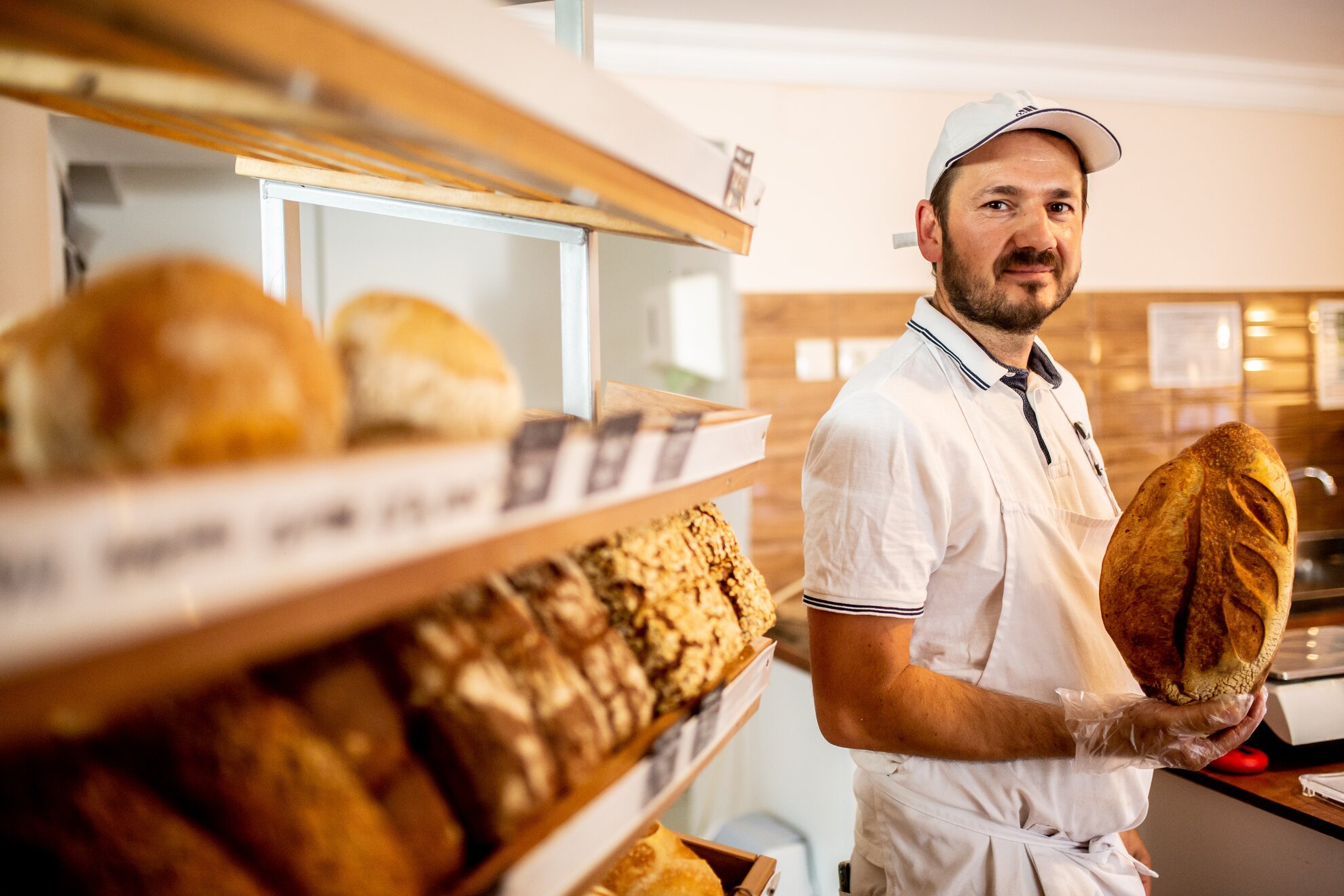
“The secret to a crescent roll is that you have to give the dough time to rest. People think that it’s all about the yeast, and the additives will make it perfect, but this only causes damage”, explains József while packing the raw, crescent-shaped pastries into the oven. Currently, he’s preparing for the Wekerle producer’s market, where he’ll be offering croissants, chocolate swirls, vegan pastries and the like. We get to observe the baking process, longing for a taste of the finished products: they are famously good. The chocolate swirl is especially popular, made with a generous amount of chocolate, and a soft buttery taste. József explains that whenever you feel you’ve added enough chocolate, that’s when you should reach for even more.
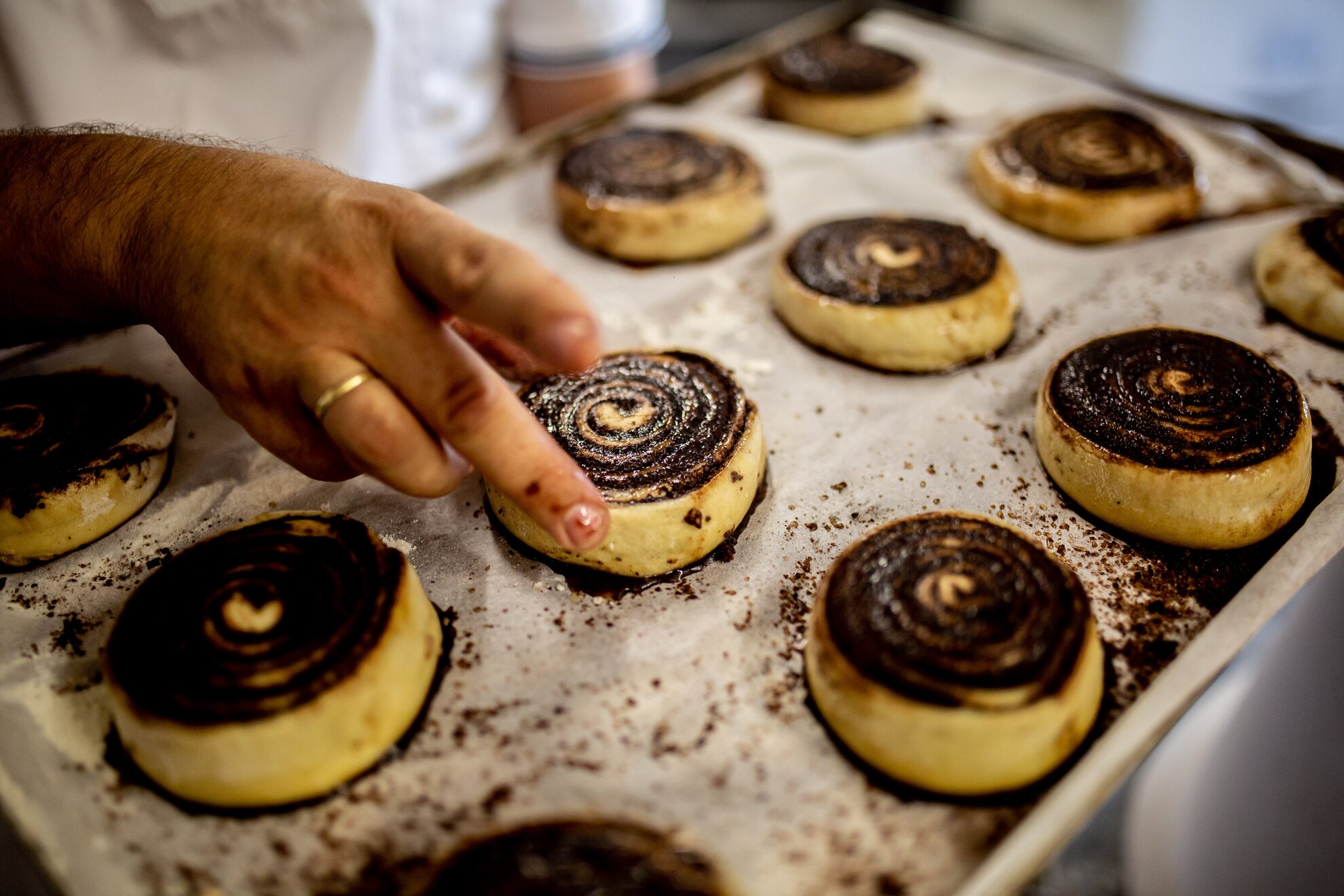
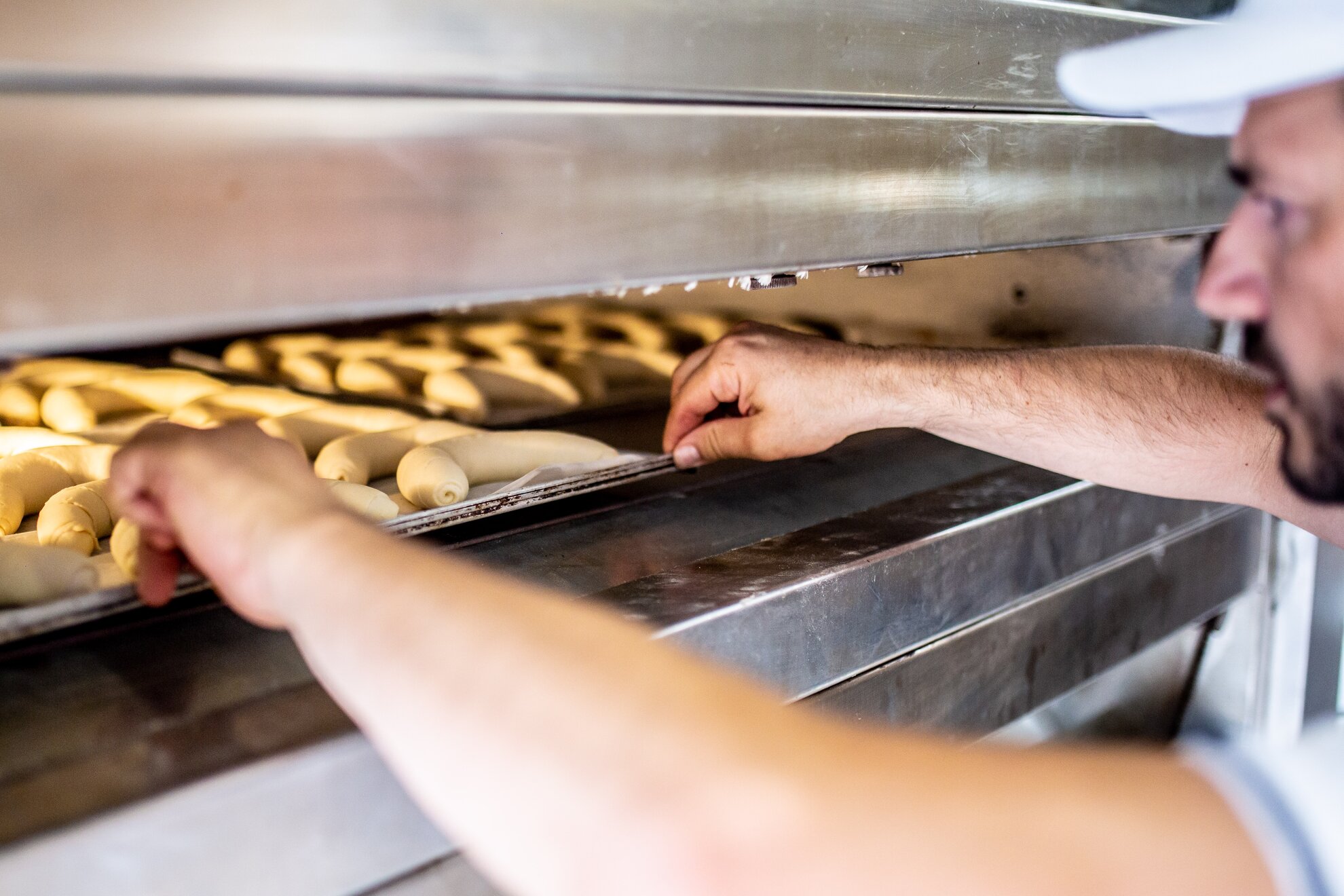
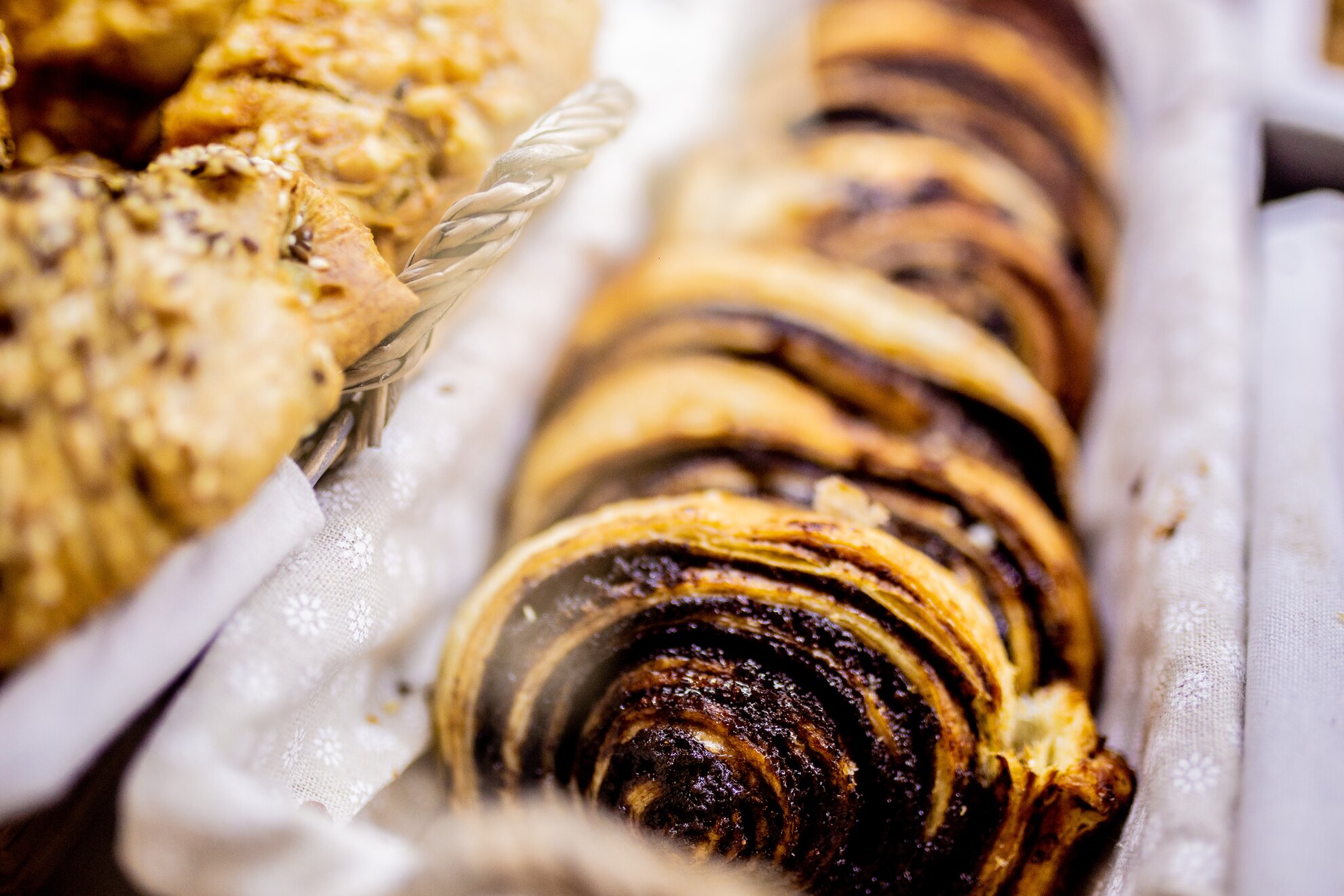
Needless to say, he doesn’t use any margarine or additives in his products. The breads and baguettes are made with sourdough and, apart from the traditional white ones, most of his pastries are wholemeal variations, such as wholemeal spelt and rye breads, olive-tomato-onion breads, as well as German-style seeded breads. Józsi doesn’t take any chances, and regularly orders flour from five different mills, so he can always maintain top quality for his customers. All of his hard work finally payed off this year: he won in the whole-wheat category at the 2020 Kenyérlelke Bread Festival, with his Kukutyin seeded variety.
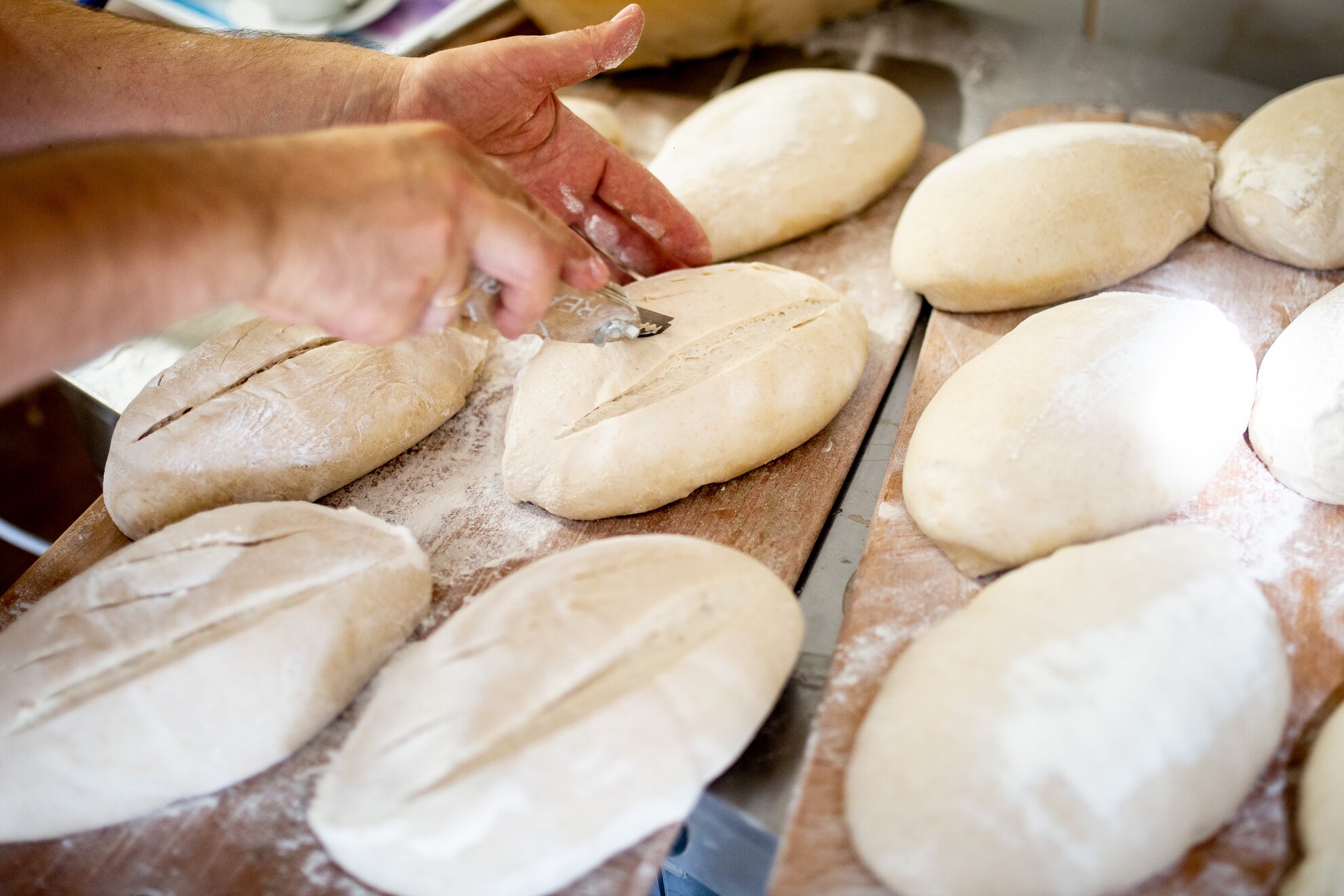
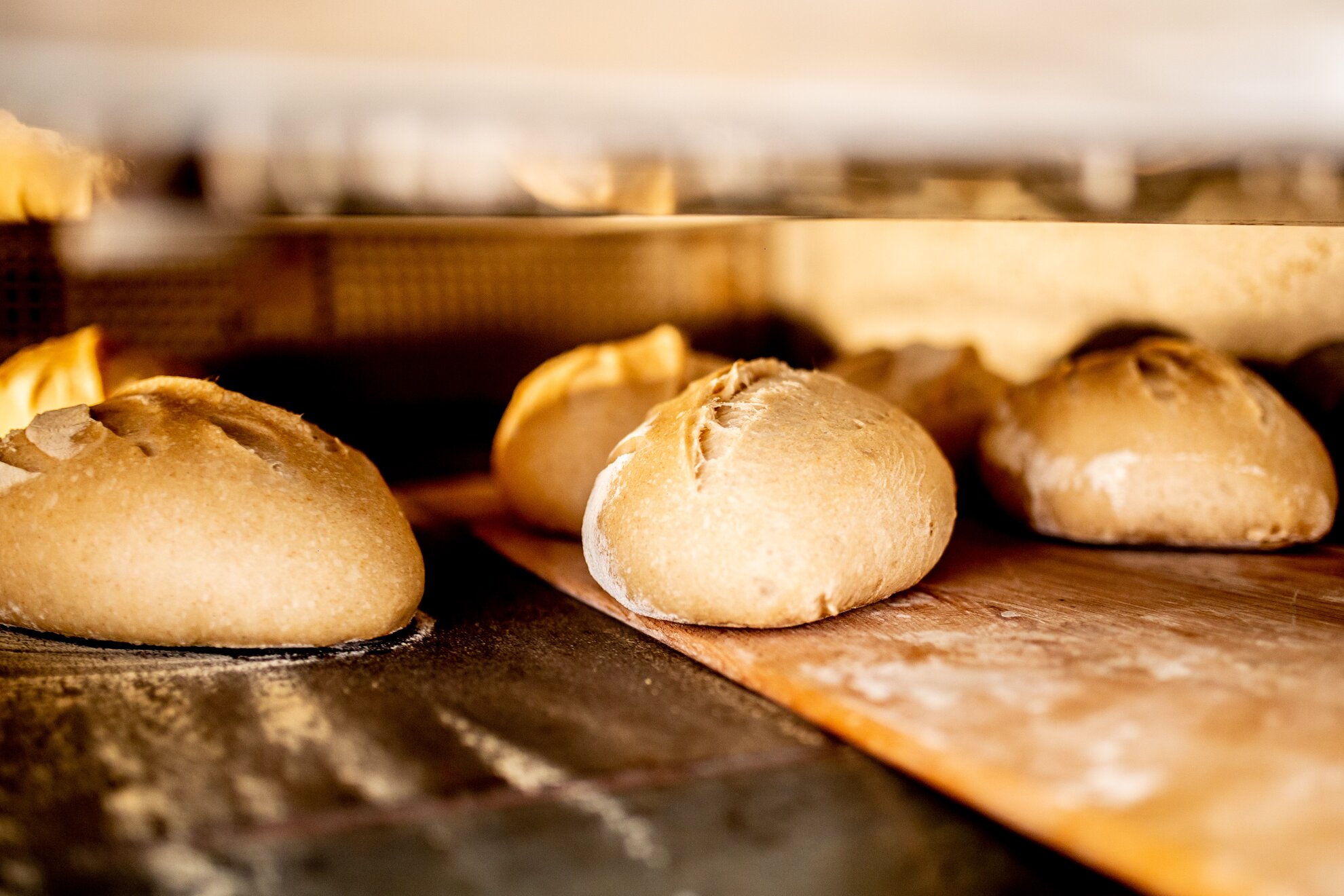
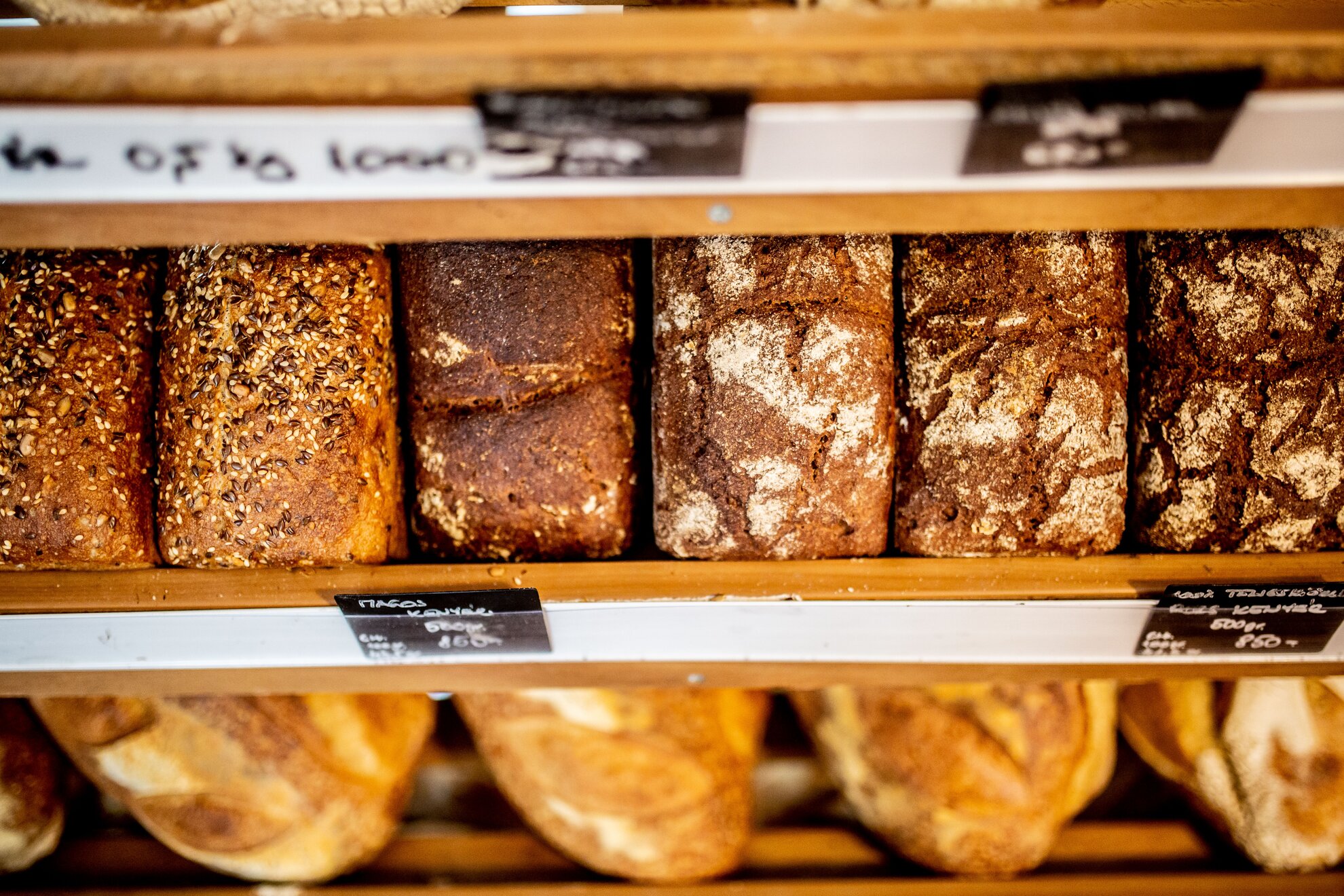
In addition to the Wekerle market, customers can find Panelpék products at Kossuth tér in District XIX, at the Grassalkovich út outlet, as well as at producer’s markets on Római-part in Óbuda and in Csepel. The small shop functions as a deli as well, where Józsi offers the produce of trusted, reliable organic farmers. Amid a whole range of produce, visitors will find quail’s eggs, jams, cheeses, smoked meat products, buckthorn products, vegetables, fruit and, of course, mouth-watering breads, cheese sticks, buns and other baked goods. Józsi’s own pastries are made with organic ingredients as well, filled with the best jams and cheeses.
A life of adventure
Given his family history, it’s no wonder that Józsi chose to take this path. Almost all of his forebears have been bakers, his great-grandfather used to bake breads in a furnace back in the day. Józsi, on the other hand, didn’t care for this profession for a long time, as he wanted to escape the family fate – but, ultimately, he knew it was what he is meant to do, initially working within the framework of large-scale industry.
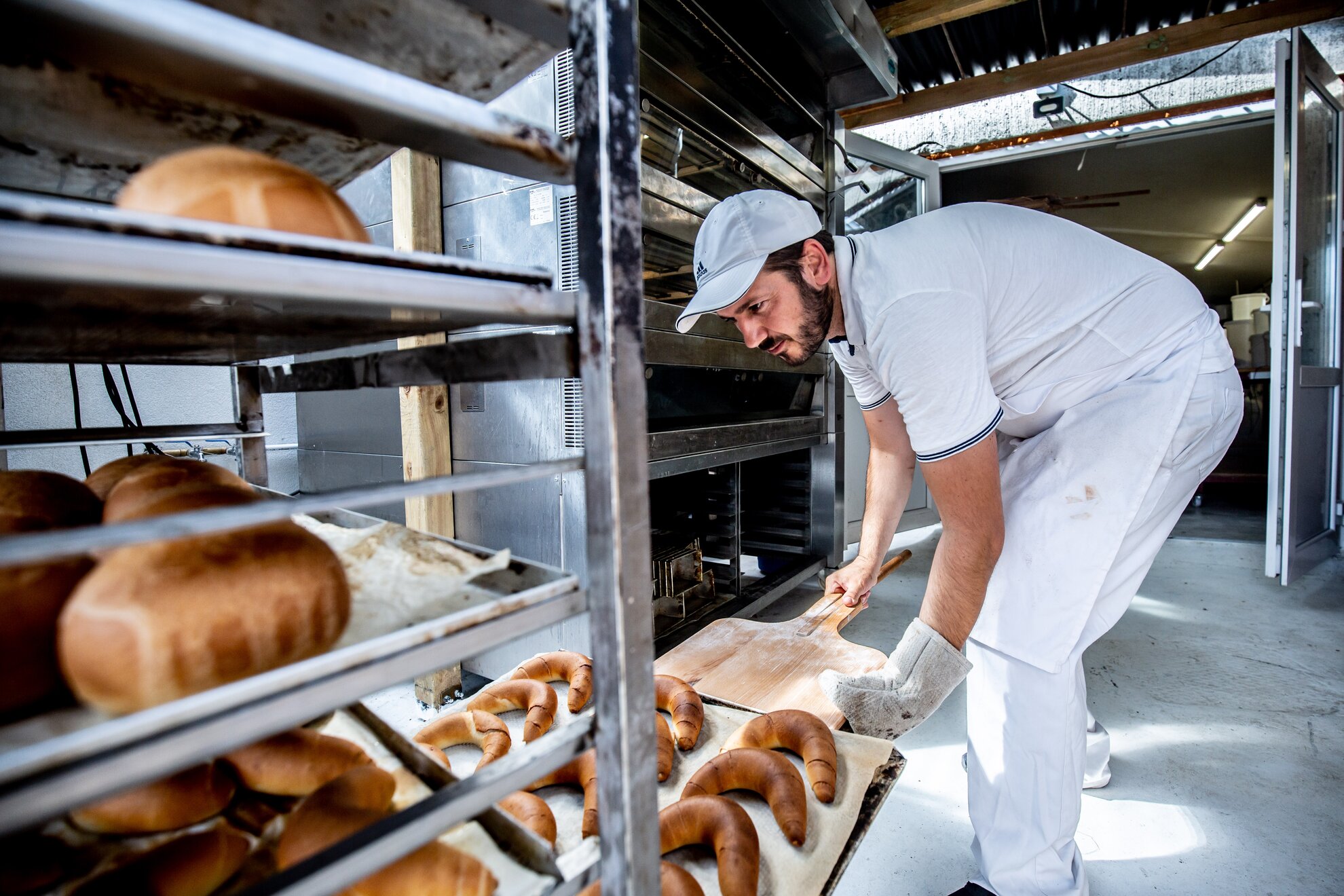
Later, when unemployed, he started experimenting with homemade bread in an apartment block in Pesterzsébet, using completely different methods to what he was used to before. “I basically had to rethink the profession, and relearn everything I knew,” he says. The Panelpék business began with his convection oven, which outgrew the small kitchen pretty fast. In January 2020, he moved to a family house on Grassalkovich út, where he not only runs the shop, but lives as well. A magical, multi-level garden also belongs to the building, which might open new doors for the bakery in the future.
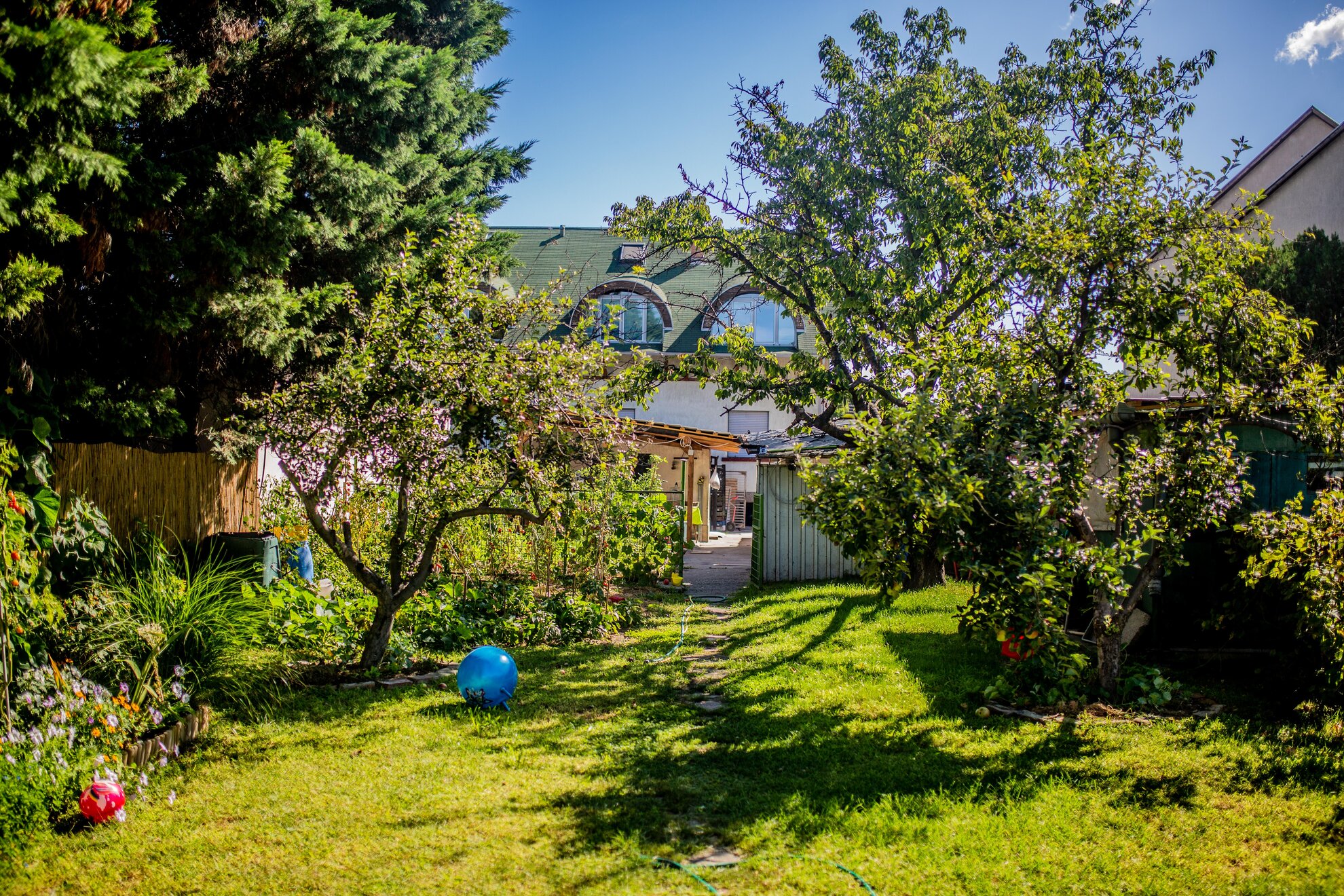
Józsi’s wife Barbara is a horticulturist, herbalist and naturopath, and has already started working her magic on the garden, which is a unique phenomenon in this mostly industrial, bleak part of town. Thanks to Barbara’s research, the upper garden now produces tomatoes, peppers, carrots and other organic vegetables, while the lower part almost seems like a forest. The stairs are framed by rock gardens, and a Japanese garden is planned to be created below them. The abundance of natural wonders here is completed with a spring, connected to a charming small lake.
For now, the team is discovering the potential in this new territory. They have planted something wherever they could, and the results are awaited with excitement. They want to create a space which is visitor-friendly, and which can also provide fresh ingredients for the shop. If all goes according to plan, Panelpék will soon be renamed Kenyér és kert (‘Bread and Garden’).
